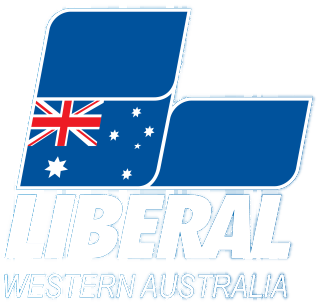SENATOR DEAN SMITH
SHADOW ASSISTANT MINISTER FOR COMPETITION, CHARITIES AND TREASURY
SENATOR FOR WESTERN AUSTRALIA
MEDIA RELEASE
15 October 2024
GROCERY PAIN CONFIRMED BY SENATE INQUIRY AND CHARITY REPORT
The Albanese Government’s failure to bring down grocery prices and the hardship it is causing Australian households dominated the recent Senate Cost of Living Committee hearing – and the evidence was today reinforced by the 2024 Foodbank Hunger Report.
At the hearing in Canberra last week, Senator Dean Smith asked witnesses if any of the five major initiatives announced by Labor to reduce check-out costs would actually work.
Labor policy failing or too late
Those initiatives are the Emerson Review, ACCC Supermarkets inquiry, Merger Reforms, and changes to the Unit Pricing and Food and Grocery Codes, would have any material impact in reducing food and grocery prices.
After a long pause, Coles and Woolworths representatives indicated they would work on reducing prices for consumers “irrespective of what the Government is proposing or not proposing”.
It clearly indicated that the major supermarkets place little stock in the potential of Labor’s policies.
ACCC and Treasury officials confirmed that the Albanese Government’s competition and consumer protection reforms are very far from implementation – with most not in place until late 2025 at the earliest.
In fact, the ACCC noted that major competition issues, including persistent barriers to entry like high establishment costs and logistics arrangements, remain under-addressed by Labor’s proposals.
This means that as shoppers approach the financially demanding Christmas holidays, they won’t be receiving any relief at the till from Labor’s policies.
Turning to Unit Pricing and ‘shrinkflation’, Senator Smith referenced the example of a $4.50 box of Coles Brand Mighty Grain Cereal that contained 560g of cereal in October 2022, but only 495g in March 2024.
Coles and Woolworths admitted shrinkflation is being noticed by customers, who are forced to pay more attention to unit-pricing to get maximum value from their weekly shop.
And not only shoppers are suffering – Master Grocers, which represents independent grocers, said Labor’s proposed amendments to the Unit Pricing Code wrap smaller operators in red tape they are ill-equipped to manage during the cost-of-doing-business crisis.
Foodbank Hunger Report 2024
It comes as Foodbank released its annual Hunger Report today, highlighting food security in Australia has now reached “a critical point”.
The Report found 32 percent – or 3.4 million – Australian households experienced food insecurity this year, while the rate for low-income households was up to almost half, or 48 percent.
Case studies note that the cost-of-living cris has seen the price of everything rise, while salaries have not and they are struggling desperately as a result.
And the level of hardship is also more severe, with Foodbank reporting households are skipping meals, reducing portion sizes and even going days without eating.
Critically, 2024 has been the first year in which many Australians have experienced food insecurity, with 74 percent of impacted households going hungry for the first during the last 12 months.
The only conclusion is that the Albanese Government’s core supermarket price initiatives are either failing, or will be delivered too late, to ease pressure on Australian shoppers or small businesses – and that this is occurring as twin cost-of living and cost-of-doing-business crises are seeing record amounts of Australians unable to put food on the table.
Comments attributable to Senator Dean Smith:
“Labor’s five core proposals to deliver cost-of-living relief at the check-out are too little too late for shoppers or being shrugged off by stakeholders, with no material change to prices in sight.”
“The Albanese Government’s changes to the Unit Pricing Code risk making business much harder for small grocers – not to mention their customers.”
“Now the 2024 Hunger Report reveals nearly half of low-income households are food insecure, with the severity of that insecurity worse than ever.”
“Yet again, Labor has dragged its heels in delivering policy with tangible outcomes that make life easier for consumers and Jim Chalmers and Andrew Leigh must explain why.”
ENDS
